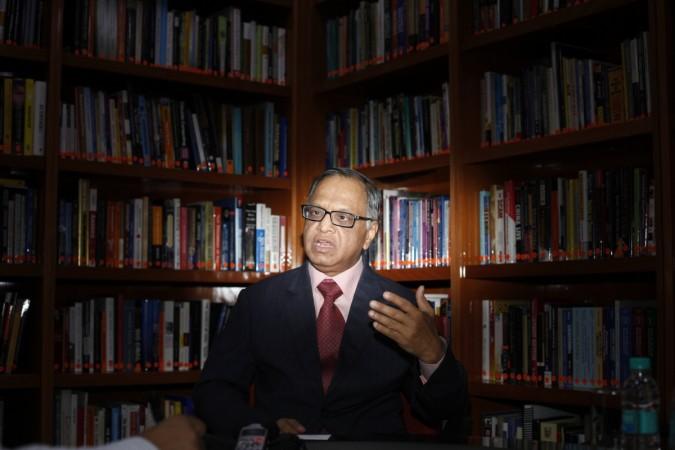
The National Association of Software and Services Companies (Nasscom) rejected NR Narayana Murthy's comment wherein he called Indian IT firms as behaving like "immigration agents."
In an Economic Times article dated April 6, Murthy was quoted as saying: "My belief was that a corporation that has global aspiration has to be fair to its global employees. All Indian companies guarantee visas, they guarantee green cards. The whole exercise has become as if they are immigration agents. I am sorry to say that. Indian companies behave as if they are agents for their employees to cross the Atlantic."
The ET cited another report, saying that Murthy reportedly told this to a delegate at Indian School of Business (ISB), Hyderabad. The chairman emeritus of Infosys said: it was "imperative for the IT companies to create local jobs as it was their responsibility to do so."
In 2010, Infosysprepared a model to help it reduce its dependence on H1 and L1 visas. The 'extreme offshore' model propagated by Murthy along with Kris Gopalakrishnan, however, failed to yield desired results, according to another report by the Business Standard.
"I introduced it in 2011, but the model has not been pursued after my exit in 2014," Murthy was quoted as saying.
As the chairman of the software services company then, he had overseen the implementation of the model with an aim to achieve 95 percent offshore utilisation capabilities. His intention was to prepare the company to face an extreme anti-work visa posturing by the U.S. political parties.
According to the BS report, the "model was not feasible" even a year after its implementation. Analysts also confirmed the company's experimentation with the model fell short of expectation.
IT industry body said Murthy's statement was "not the view of the industry."
Nasscom President Chandrasekhar said: "... nor does it reflect the reality of what the industry is doing for companies in the US. The industry has evolved hugely over the years, and the value and efficiency they created for their customers is tremendous. One should also not forget that there is a skill shortage in the US."
With deals getting smaller and competition increasing, analysts believe, being closer to the customer matters. A close look at the industry reveals that good performers are the ones who have remained close to the customer, be it in sales or senior management or talent, they said.
"I suppose they still work with a few clients but it did not have any major impact. Moreover it is not possible for the industry to be visa free. There is not enough talent in these markets," said an analyst of a leading brokerage firm to the BS.
Sanchit Gogia, chief analyst and CEO, Greyhound Research, explained that the Indian services model is just not about offshore. He added it has always been a calculated mix of three aspects --offshore, onshore and near shore -- and investments over the years have gone to balance these three strategies.
The recent two-fold hike in the U.S. visa fee for temporary immigrant workers (categorised as H1B and L1) and the number of such visas apportioned each year have grown to be the sticking points in India-U.S. relations.
India's largest IT service company Tata Consultancy Services (TCS) is the largest employer among Indian companies, both in the U.S and the European markets. The company has stepped up initiatives to hire from US campuses.
Infosys, in 2014, had said its campus hiring in the US for the year stood at 250 and the company intended to push the number to 1,000.








